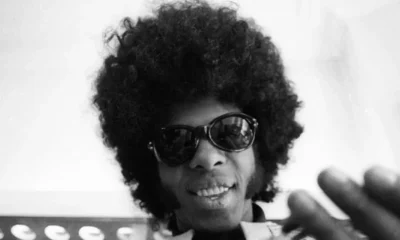border
Immigrants Shaping Their Digital Footprints Amidst a Tumultuous Political Landscape

As DACA program renewals face increasing scrutiny, many recipients are grappling with the unintended consequences of their digital footprints. Miguel, a San Francisco resident and DACA recipient, recently experienced a lapse in his status after a five-month delay in renewal. This delay left him in legal limbo, rendering him unable to work at the professional services company he had been with for a decade.
“I was trying to do a lot of damage control,” Miguel recalled, highlighting the stress that came with reaching out to officials in efforts to expedite his renewal process. During this time, he became acutely aware of his online presence, realizing that any revealing information could jeopardize his security amidst an unpredictable political climate surrounding immigration.
Prior to this experience, Miguel, who immigrated from the Philippines at the age of seven, had already taken steps to safeguard his identity online. He set his social media accounts to private, aiming to navigate a personal narrative that felt increasingly complicated. Despite his DACA renewal, he remains cautious about his online identity, emphasizing a desire to not be solely defined by his immigration status.
Legal expert Ray Ybarra Maldonado noted the growing trend of immigration officials requesting social media handles for applicants. “Whatever you put out there could be scrutinized later,” he warned, reflecting on cases where online activity has led to arrests or deportations. Such scrutiny adds pressure for DACA recipients and immigrants alike to manage their digital behaviors vigilantly.
In previous years, agencies like ICE have utilized social media and commercial data to track immigrants. For instance, a case surfaced where social media activity provided the impetus for a deportation; a simple Facebook check-in led to a man’s arrest. This illustrates the perilous intersection of digital sharing and legal vulnerabilities faced by many in the immigrant community.
Conversely, maintaining a visible online presence can also yield positive implications. It can serve as a testament to an immigrant’s contributions and involvement within their communities. Ybarra Maldonado suggests that potential applicants for citizenship keep their profiles private but remain discerning about how their online narratives are shaped.
Another DACA recipient, José Patiño, has embraced being public with his status through social media. Growing up with a clear perspective on his immigration status, he initially hesitated to join online platforms. However, he eventually recognized the power of sharing his experiences. “If people knew who I was, they could figure out how to support me,” he remarked, balancing personal advocacy with community organizing efforts.
Patiño now co-directs Aliento, an organization focused on uplifting immigrant voices and experiences. Reflecting on the impact of DACA and evolving political narratives, he is cognizant of the challenges but feels compelled to foster hope and connection through his online presence.
Similarly, Tobore Oweh, who migrated from Nigeria in her youth, has actively used social media to advocate for herself and her community. Emphasizing the value of connection, she shares her journey as a means of empowerment, despite constantly navigating the uncertainty tied to her legal status. Her willingness to advocate publicly enriches both her life and those around her.
Despite the risks, many in the immigrant community recognize that social media is pivotal for advocacy and connection. Beleza Chan, from Immigrants Rising, noted that while movements have historically flourished through digital activism, today’s climate offers a mixed bag of encouragement and fear. “You’re undocumented and you’re very afraid to speak up,” she observed, reflecting the collective anxiety that has surfaced in recent years.
As the political landscape evolves, DACA recipients like Miguel, Patiño, and Oweh continue to navigate their identities amid the complexities wrought by a fluctuating immigration system. Their stories underscore the resilience of individuals seeking to balance personal expression with the realities of their status in society.


















